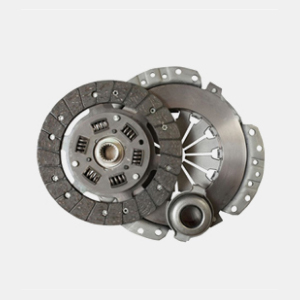-
 Afrikaans
Afrikaans -
 Albanian
Albanian -
 Amharic
Amharic -
 Arabic
Arabic -
 Armenian
Armenian -
 Azerbaijani
Azerbaijani -
 Basque
Basque -
 Belarusian
Belarusian -
 Bengali
Bengali -
 Bosnian
Bosnian -
 Bulgarian
Bulgarian -
 Catalan
Catalan -
 Cebuano
Cebuano -
 China
China -
 Corsican
Corsican -
 Croatian
Croatian -
 Czech
Czech -
 Danish
Danish -
 Dutch
Dutch -
 English
English -
 Esperanto
Esperanto -
 Estonian
Estonian -
 Finnish
Finnish -
 French
French -
 Frisian
Frisian -
 Galician
Galician -
 Georgian
Georgian -
 German
German -
 Greek
Greek -
 Gujarati
Gujarati -
 Haitian Creole
Haitian Creole -
 hausa
hausa -
 hawaiian
hawaiian -
 Hebrew
Hebrew -
 Hindi
Hindi -
 Miao
Miao -
 Hungarian
Hungarian -
 Icelandic
Icelandic -
 igbo
igbo -
 Indonesian
Indonesian -
 irish
irish -
 Italian
Italian -
 Japanese
Japanese -
 Javanese
Javanese -
 Kannada
Kannada -
 kazakh
kazakh -
 Khmer
Khmer -
 Rwandese
Rwandese -
 Korean
Korean -
 Kurdish
Kurdish -
 Kyrgyz
Kyrgyz -
 Lao
Lao -
 Latin
Latin -
 Latvian
Latvian -
 Lithuanian
Lithuanian -
 Luxembourgish
Luxembourgish -
 Macedonian
Macedonian -
 Malgashi
Malgashi -
 Malay
Malay -
 Malayalam
Malayalam -
 Maltese
Maltese -
 Maori
Maori -
 Marathi
Marathi -
 Mongolian
Mongolian -
 Myanmar
Myanmar -
 Nepali
Nepali -
 Norwegian
Norwegian -
 Norwegian
Norwegian -
 Occitan
Occitan -
 Pashto
Pashto -
 Persian
Persian -
 Polish
Polish -
 Portuguese
Portuguese -
 Punjabi
Punjabi -
 Romanian
Romanian -
 Russian
Russian -
 Samoan
Samoan -
 Scottish Gaelic
Scottish Gaelic -
 Serbian
Serbian -
 Sesotho
Sesotho -
 Shona
Shona -
 Sindhi
Sindhi -
 Sinhala
Sinhala -
 Slovak
Slovak -
 Slovenian
Slovenian -
 Somali
Somali -
 Spanish
Spanish -
 Sundanese
Sundanese -
 Swahili
Swahili -
 Swedish
Swedish -
 Tagalog
Tagalog -
 Tajik
Tajik -
 Tamil
Tamil -
 Tatar
Tatar -
 Telugu
Telugu -
 Thai
Thai -
 Turkish
Turkish -
 Turkmen
Turkmen -
 Ukrainian
Ukrainian -
 Urdu
Urdu -
 Uighur
Uighur -
 Uzbek
Uzbek -
 Vietnamese
Vietnamese -
 Welsh
Welsh -
 Bantu
Bantu -
 Yiddish
Yiddish -
 Yoruba
Yoruba -
 Zulu
Zulu
rubber coated metal mesh
Exploring Rubber Coated Metal Mesh Versatility and Applications
Rubber coated metal mesh is a versatile material that has garnered attention across multiple industries for its unique blend of durability, flexibility, and functionality. This innovative composite combines the strength of metal with the elastic properties of rubber, creating a product that addresses specific needs in various applications, from construction to automotive industries.
One of the primary benefits of rubber coated metal mesh is its enhanced durability. The metal substrate provides structural integrity, making the mesh resistant to bending and breaking under stress. Meanwhile, the rubber coating serves as a protective barrier against environmental factors such as moisture, corrosion, and wear. This property is particularly advantageous for outdoor applications, where exposure to the elements can lead to rapid degradation of uncoated metal products.
The flexibility offered by the rubber coating also makes this material particularly useful in projects requiring a degree of adaptability. The rubber gives the mesh the ability to absorb shock and reduce noise, which is essential in environments where machinery operates in close proximity to areas populated by people. This characteristic is a game-changer for industries that prioritize worker safety and comfort.
One of the most prominent applications of rubber coated metal mesh is in the construction sector. Here, the mesh is used for reinforcement purposes, ensuring the stability and longevity of structures. Its ability to prevent water accumulation and promote drainage makes it an ideal choice for roofing and flooring applications. Additionally, the material is often used in parapets, hazardous area fencing, and safety barriers, providing both function and an aesthetic touch to architectural designs.
rubber coated metal mesh

The automotive industry also benefits from the unique properties of rubber coated metal mesh. In vehicles, this material can be found in components such as exhaust systems, heat shields, and sound dampening panels. The rubber coating helps to minimize vibrations and noise, contributing to a more comfortable and quiet ride. Moreover, the resilience of the metal mesh ensures that these components can withstand high temperatures and mechanical stress without succumbing to failure.
In addition to construction and automotive applications, rubber coated metal mesh is also making waves in the agricultural sector. Farmers are utilizing this material for animal enclosures and fencing, as it provides a secure solution that is both durable and resistant to weather conditions. The flexible nature of the rubber coating allows for easier installation and maintenance, further enhancing its appeal for agricultural use.
Innovations in technology have allowed for further enhancements in rubber coated metal mesh production, leading to custom solutions tailored to specific needs. Manufacturers can modify the thickness of the rubber coating, adjust the size of the mesh openings, and choose different materials for the metal base to create a product that meets unique specifications. This level of customization has opened doors to new possibilities in design and functionality.
In conclusion, rubber coated metal mesh stands out as a highly versatile and reliable material. Its combination of durability, flexibility, and adaptability ensures that it can meet the demands of various industries, from construction to automotive and agriculture. As advancements in manufacturing techniques continue, we can expect to see even more innovative uses for this remarkable composite, solidifying its role as an essential component in modern applications. Its promise of enhanced performance is sure to keep rubber coated metal mesh at the forefront of material science and engineering.
-
Shipping Plastic Bags for Every NeedNewsJul.24,2025
-
Safety Netting: Your Shield in ConstructionNewsJul.24,2025
-
Plastic Mesh Netting for Everyday UseNewsJul.24,2025
-
Nylon Netting for Every UseNewsJul.24,2025
-
Mesh Breeder Box for Fish TanksNewsJul.24,2025
-
Expanded Steel Mesh Offers Durable VersatilityNewsJul.24,2025











